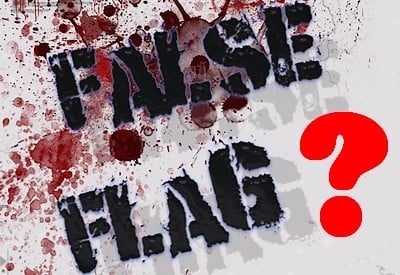False Accusations and Fake News: Assad Government Did Not Commit the Gas Attacks in Khan Shaykhun
Part II

Further False Accusations of Gas Attacks
The stories of the Syrian government’s alleged use of gas against its own people never stopped since 2013 despite clear indications of terrorist rebels being the actual perpetrators or at least propagandists behind them. To quote from this 2015 CounterPunch article:
On October 1, 2014, the Organization for Prohibition of Chemical Weapons (OPCW) announced that the elimination of prohibited chemical weapons and facilities in Syria had been successfully completed. It was a remarkable achievement and the Nobel Peace Prize was awarded to the Organization for the Prohibition of Chemical Weapons (OPCW).
According to its report, in May 2014, an OPCW team tried to investigate at the site of alleged chlorine gas attacks. The Syrian government gave the OPCW team passage to the rebel controlled area but the convoy was attacked by a rebel faction. None of the team members was injured but that stopped their on-site investigation. Instead, the OPCW worked with the well-funded opposition-supporting Violations Documentation Center to arrange interviews with numerous people from three villages. The interviews were conducted outside Syria, probably in Turkey. They gathered photographs, videos and other evidence and expressed “high confidence that chlorine had been used as a weapon in Syria” in three villages. They did not ascribe responsibility.
This 2017 Consortium News article is clear about which party actually was behind the alleged chlorine gas attacks in 2014:
United Nations investigators received testimonies from Syrian eyewitnesses regarding another attempt by Al Qaeda-affiliated jihadists and their “rescue” teams to stage a chlorine attack in the town of Al-Tamanah on the night of April 29–30, 2014, and then spread word of the bogus attack through social media.
“Seven witnesses stated that frequent alerts [about an imminent chlorine weapons attack by the government] had been issued, but in fact no incidents with chemicals took place,” the U.N. report stated. “While people sought safety after the warnings, their homes were looted and rumours spread that the events were being staged. … [T]hey [these witnesses] had come forward to contest the wide-spread false media reports.”
So Assad hands over his chemical weapons to the OPCW and allows them to conduct their investigations. The Al-Qaeda affiliated rebels, on the other hand, attack the OPCW, spread lies about gas attacks and loot the homes of civilians. Conclusion: “It was Assad’s gas!” Makes perfect sense, doesn’t it?
The April 4, 2017, Gas Attacks in Khan Shaykhun
Fast forward to 2017. After having gone through all the trouble with the false flag gas attacks or respective propaganda and fake news ever since 2013, the notion that Assad would do the anti-Assad forces the huge favor of committing PR-seppuku by actually carrying out gas attacks against the civilian population is so ridiculous as to be almost beyond imagination. To once again quote from the same CounterPunch article:
On March 30, US Secretary of State Rex Tillerson said that the future leader of Syria should be determined by the people of Syria.
This major policy statement by the US took regime change off the table, and was obviously great news for Bashar al-Assad. Combined with Syrian military gains on the ground, Assad was in the strongest position he’d been in since the war in Syria began.
So, why 5 days later would he gas his own people?
To give the U.S. a good excuse to missile strike Syrian military installations? To strengthen international opposition against his regime? Because Assad does not like victory? Most likely not. When crimes such as these are committed, the two standard questions to consider are “Who could have pulled it off?” and cui bono or “Who stood to gain from it?” Assad could have pulled it off, but that is also true for the Al-Nusra Front rebels who already perpetrated such an attack in 2013 with the help of outside forces. As confirmed by the events that unfolded after the attacks, however, it was not Assad but only the rebels and other anti-Assad forces that would be the primary beneficiaries of these attacks. Despite being a ‘morally flexible’ son of a dictator and a dictator himself, it is therefore rather unlikely that Assad ordered the attacks and rather likely that the attacks were committed by anti-Assad forces, also given that pretty much the same thing already happened in 2013.
Gregor Flock is an independent philosopher (univie.academia.edu/GregorFlock), independent journalist, Global Civil Society Network founder & ed.-in-chief (www.gcsno.org/my-blog/).

